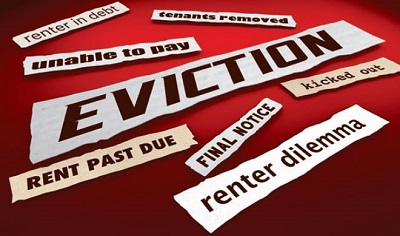Tenant Defaults - How to secure unpaid rent
South Africa is facing one of its toughest financial challenges in somewhat uncertain times. The impact thereof is that people are struggling to cover all their expenses and in some cases, their monthly rent. Tenants often find themselves in rental arrears with the only alternative of requesting their landlords for rental relief. If that fails, the next move would be to vacate the property without following the correct procedure as per their lease agreement. This is in most cases a final attempt by tenants to stay financially afloat. The landlord would, therefore, be left with an overdue rental bill and no remedy for immediate relief. It is therefore important for a landlord to act timeously before such damages are incurred.

Section 32 of the Magistrates’ Courts Act 32 of 1944 (MCA)
In terms of Section 32(1) of the MCA, the landlord may attach movable property as security for rent and it reads as follows: Upon an affidavit by or on behalf of the landlord of any premises situate within the district, that an amount of rent not exceeding the jurisdiction of the court is due in arrear in regard to the said premises, and that the said rent has been demanded in writing for the space of seven days and upwards, or, if not so demanded, that the deponent believes that the tenant is about to remove the movable property upon the said premises, in order to avoid the payment of such rent, and upon security being given to the satisfaction of the clerk to the court to pay all damages, costs and charges which the tenant of such premises, or any other person, may sustain or incur by reason of the attachment hereinafter mentioned, if the said attachment be thereafter set aside, the court may, upon application, issue an order to the messenger requiring him to attach so much of the movable property upon the premises in question and subject to the landlord’s hypothec for rent be sufficient to satisfy the amount of such rent, together with the costs of such application and of any action for the said rent.
A landlord can therefore rely upon his/her tacit hypothec and apply to the Magistrate’s court for the attachment as well as simultaneous removal of the tenant’s movable property in security of unpaid rental. The application can be issued by either the landlord himself/herself or by a representative, an attorney/relative.
Relief in terms of Section 32 shall be granted subject to the proof of either the following grounds:
- That written demand of such be provided to the tenant 7 (seven) days before the application; or
- In the case of no demand, the landlord believes that the tenant will vacate the property entirely to avoid attachment of their moveable property.
The Landlord’s Tacit Hypothec
In terms of Section 32 of the MCA, a landlord possesses a tacit hypothec when a tenant falls into rental arrears. The tacit hypothec is based upon the common law and establishes a right over the tenant’s movable property. This right enables the attachment of the tenant’s movable property to the value of the arrears which serves as security for the landlord.
How would a Landlord impose its Tacit Hypothec
The landlord will apply to the Magistrates’ Court for an attachment in terms of Section 32 of the MCA to secure the debt. This is done by way of an application accompanied by an affidavit stating the fact upon which the application is brought. The landlord may also request the court to grant an immediate order if there is a reasonable suspicion that the tenant will vacate the property as soon as notice of such application is served. If the court is satisfied, an appropriate order will be granted for immediate relief subject to a return date on which the order will be made a final order of court. The movable property will then be removed by the sheriff as security for the arrears before the tenant advances in doing so. The attached property is recorded in an inventory and stored at the sheriff’s storage facilities.
If immediate relief is not sought, the application along with a notice thereof will be served on the tenant before the hearing date. This will grant the tenant the opportunity to oppose the application.
Conclusion
Landlords are often faced with the problem of recovery of debt and to keep such recovery as cost-effective as possible. A landlord may invoke other remedies such as a rent interdict summons, or the implementation of the eviction process. However, most tenants, especially those with a history of arrear payments, will most likely not be bothered by an eviction notice nor a rent interdict summons. A Landlord’s tacit hypotec would, therefore, be the most effective solution. The thought of losing one’s personal belongings will not be taken lightly and tends to motivate tenants to pay their arrears.
Courtesy Agent Estate Agency Affairs Board

This article is a general information sheet and should not be used relied on as legal or other professional advice. No liability can be accepted for any errors or omissions nor for any loss or damage arising from reliance upon any information herein. Always contact your legal adviser for specific and details advice.






